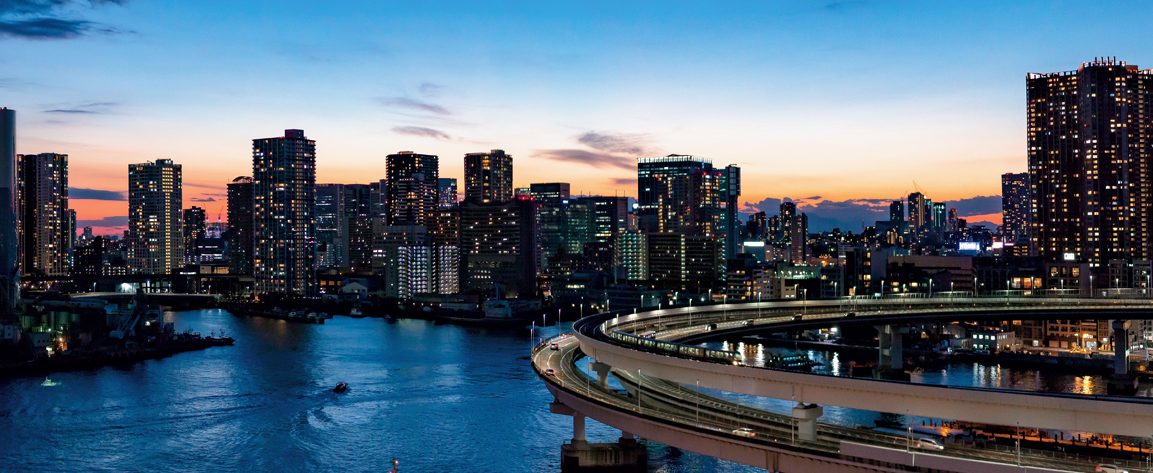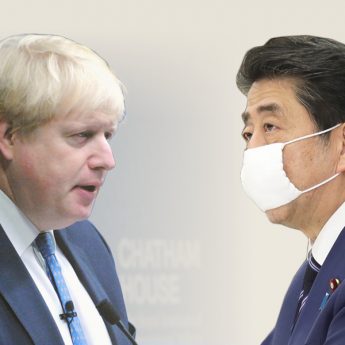A few weeks ago, I invited some people to a discussion meeting. They were individuals enrolled in one of my open seminars. It was a fairly diverse group, although the younger generation was somewhat under represented, as is often the case in Japan these days. The topic was Japaxit. Or Tokyoxit, if you prefer. In short, what did people think about the idea of Tokyo exiting Japan?
The outcome was really quite intriguing. Basically, most people were supportive of the idea. Especially the non-Tokyoites. They were rather thrilled by the thought that, by chucking Tokyo out of the country, they would be finally freed from the curse of Tokyo-centric economics. People would come home. They would stop migrating from their places of birth. The local communities could come alive once more. At the end of the day, what does Tokyo have that the local communities covet? It is all gigantic offices, huge banks, pretentious shopping malls and endless eateries.
What does Tokyo produce that the local communities cannot duplicate? Well, it doesn’t produce anything much in the first place, does it? Its consumption is huge. It imports so much of so many things from the regions. But what is it actually capable of exporting that might fill a critical regional need?
Tokyo does not have farms, other than those of the playing-at-farming variety, indulged in by business people in need of relaxation. It does have a strong assortment of factories run by competent small businesses. But their number is limited and they are by and large dependent on orders from larger manufacturers outside Tokyo. Tokyo does not even supply its own water. Well, not all of it anyway.
The next Singapore
To be sure the vast majority of large Japanese firms have their headquarters in Tokyo. But that is a matter of convenience. If Tokyoxit makes things awkward for them they would surely just as easily relocate away from Tokyo as they once relocated away from where they originally came, wouldn’t they?
Some pro-Tokyoxiters did worry about transport. What if Haneda Airport were to become inaccessible to non-Tokyoites? If not total blockage, would Tokyo demand exorbitant charges for Haneda usage by people from outside Tokyo’s borders? Well, there is always Narita International Airport, of course. And the many airports located up and down the rest of the country would surely find a way to coordinate their resources to make seamless travel possible. Where there’s a will there’s a way.
One Tokyoite was also very much for the idea. Somewhat lacking in originality, his idea was that, in the event of an exit, Tokyo would become the next Singapore and become the global city state of everyone’s dreams. This idea elicited a lot of derisive boos (albeit in jest) from the non-Tokyo team wondering how Global Tokyo would feed itself.
And so the discussions continued. What was really most impressive was the degree of glee with which the non-Tokyoites speculated over the very many aspects of a prospective Tokyoxit. Their resentment of Tokyo-centrism runs very deep indeed. Being a Tokyoite myself, this makes me flinch a bit, but their sentiment is entirely reasonable.
Independent currency
There is, I believe, a very good argument to be made for Japan to become a much less centralised nation altogether. Why not go all the way and become a federation of small but independent regional states, each equipped with its very own local currency? I often put this idea to people up and down the country. For the most part it gets a very good reception. Especially in Osaka where I feel Tokyoxit will be even more of a hit than with my small discussion group. I must try it out on them sometime. Indeed, when I raised the issue of Osaka having its own independent currency on a radio talk show, the host became highly excited and immediately suggested the name doya! for the Osaka currency. Connoisseurs of Japanese regional dialects will know that doya in Osaka-parlance means “so there!”
Speaking of dialects leads me on to think that in fact Tokyo itself may be in need of Tokyoxit. It is a nice enough city in very many ways. Its practical attractions are indeed extremely plentiful. It also has its beauties. But what actually is Tokyo anyway? There is hardly anybody around anymore who can speak with the authentic Tokyo accent that is the descendent of the everyday language of the Edo era: Edo cockney if you will.
In any event there is little doubt that the Tokyoxit debate was one of the highlights of that particular seminar. Your thoughts?







